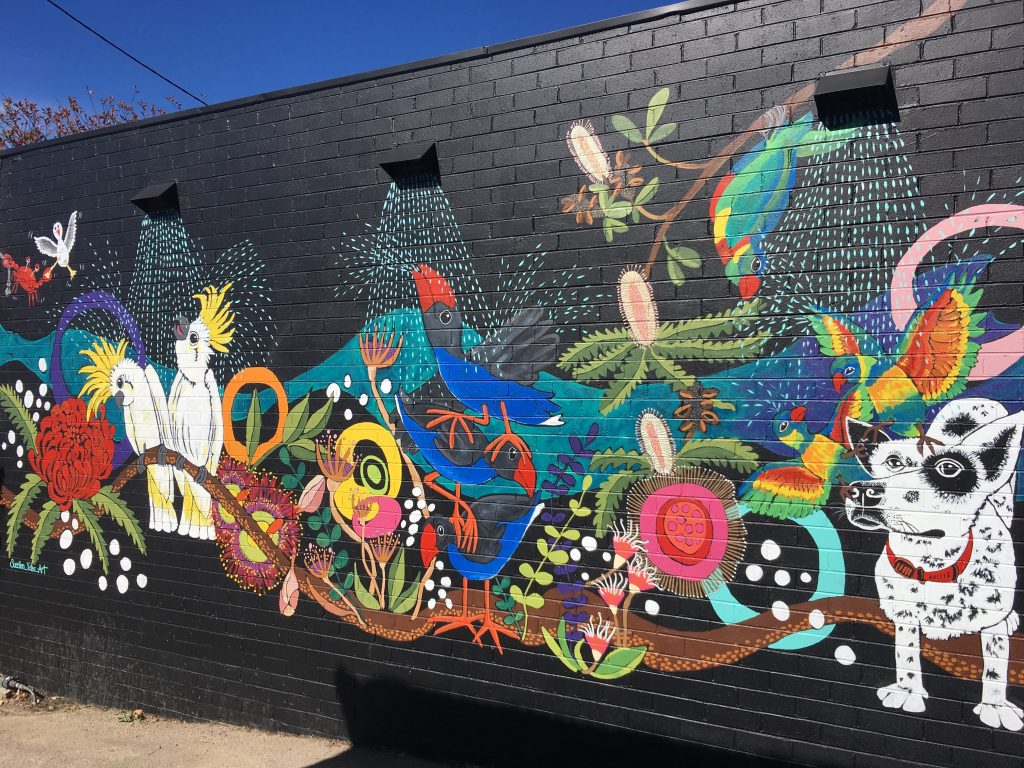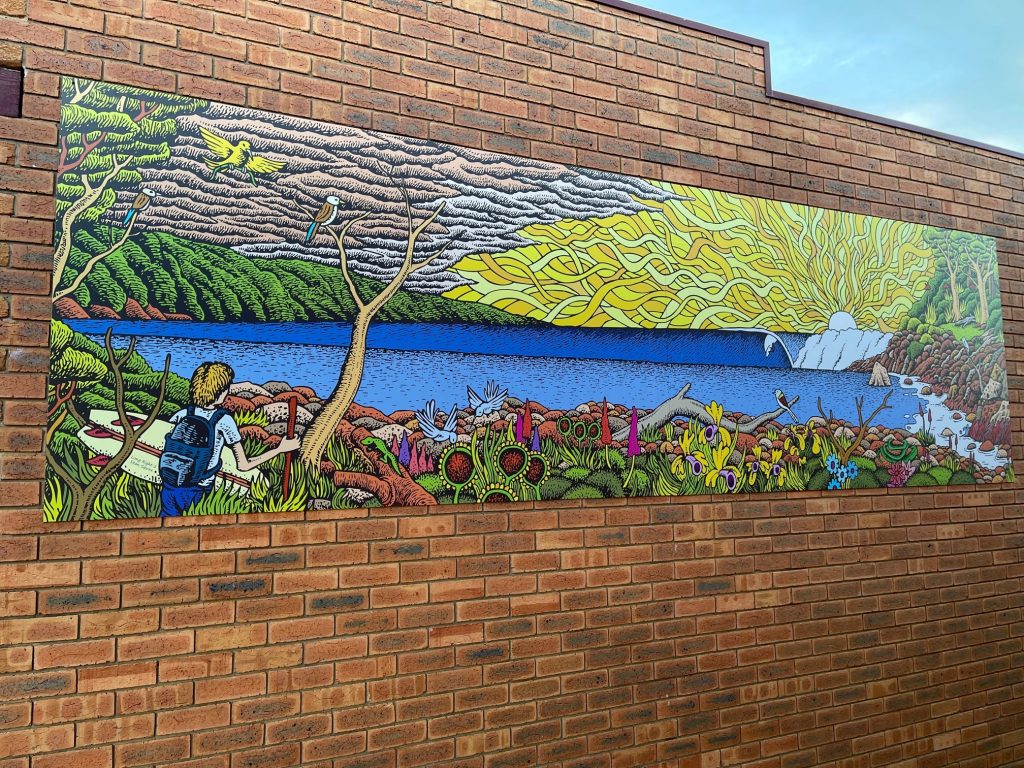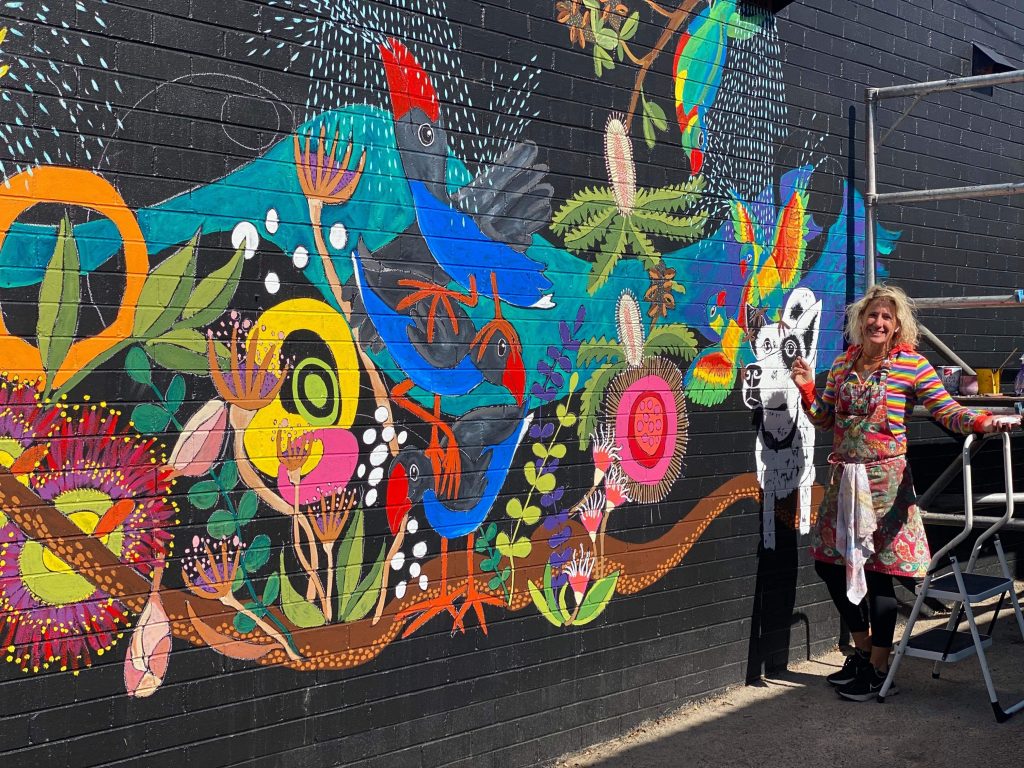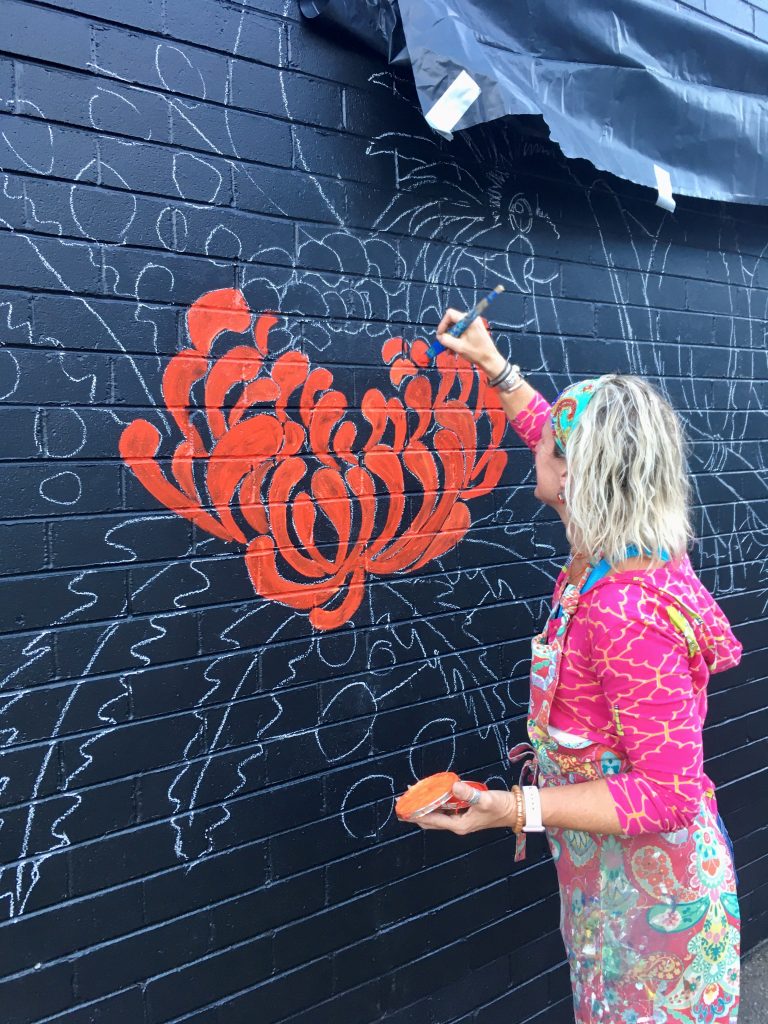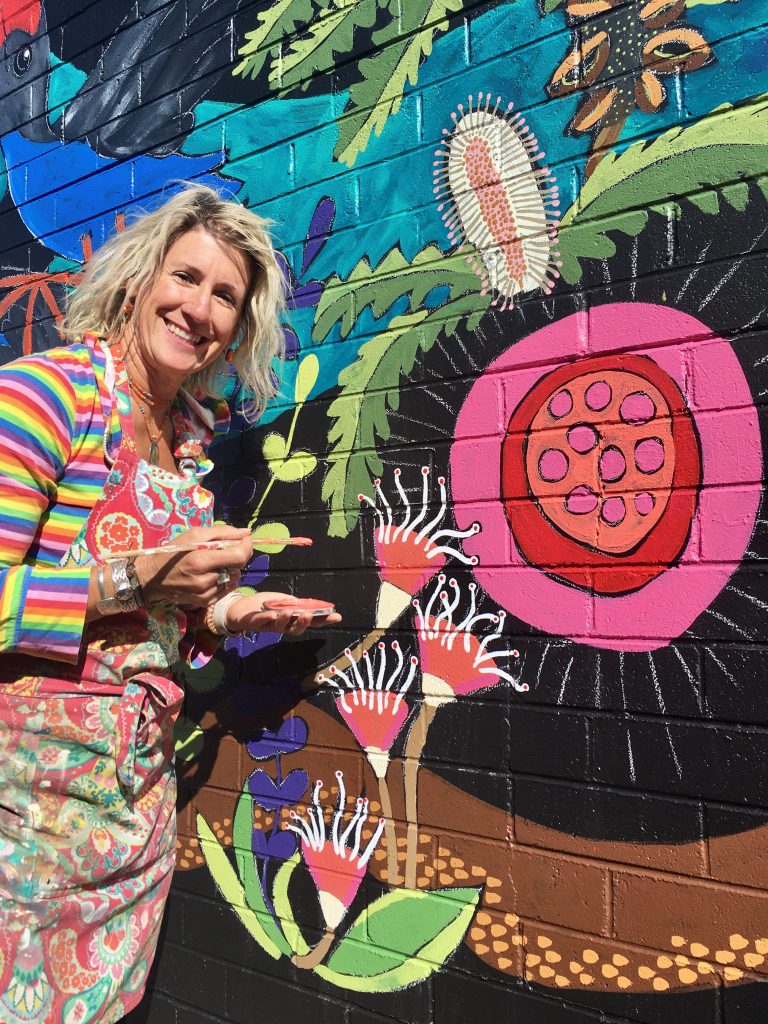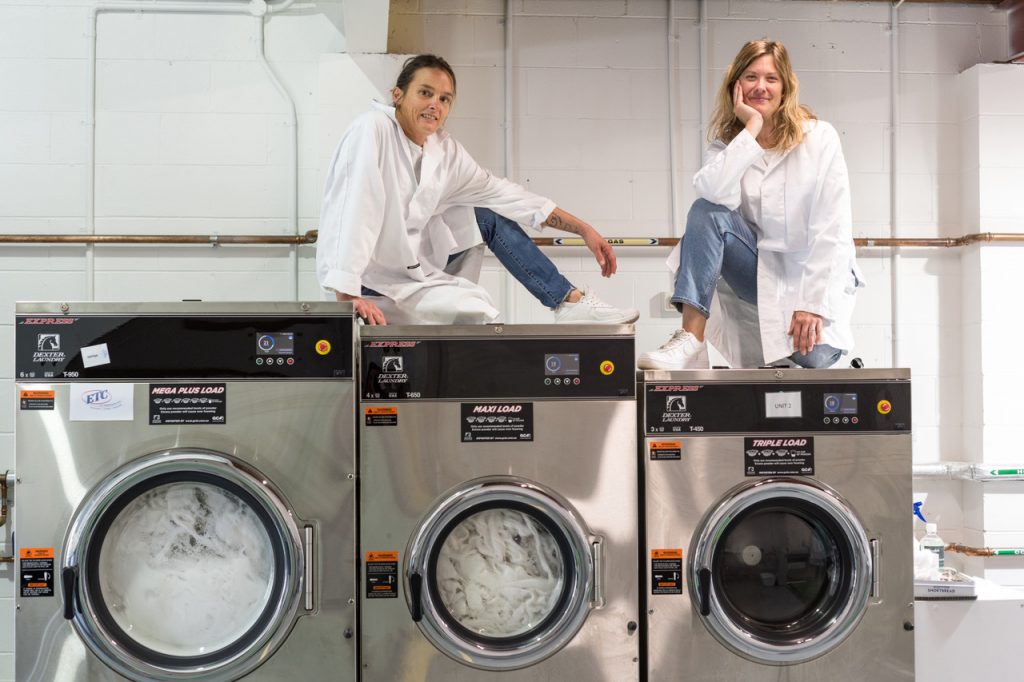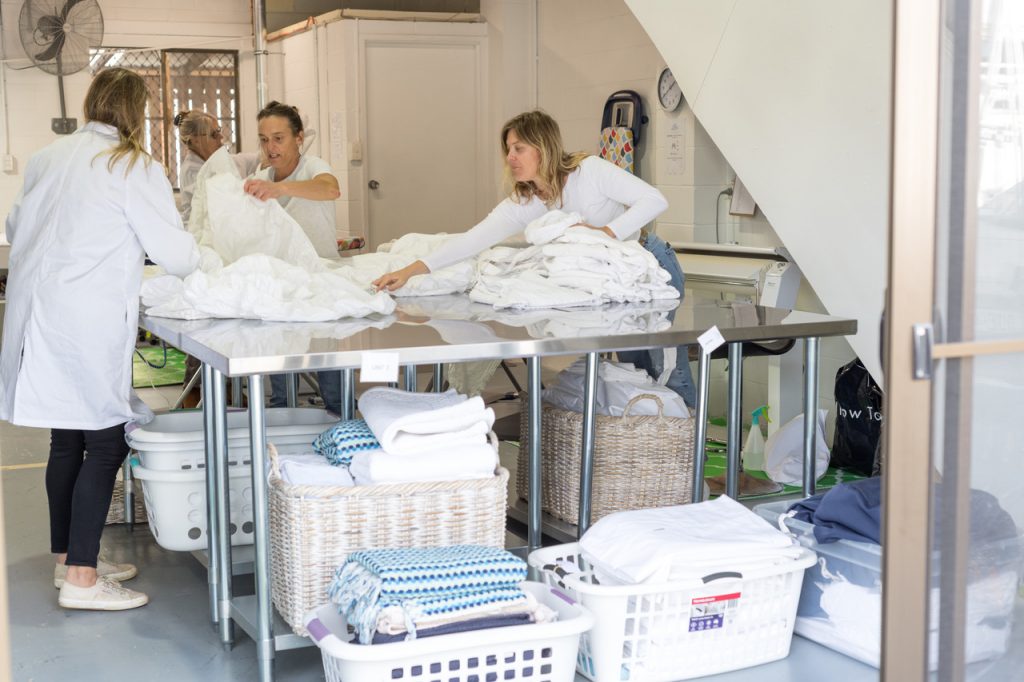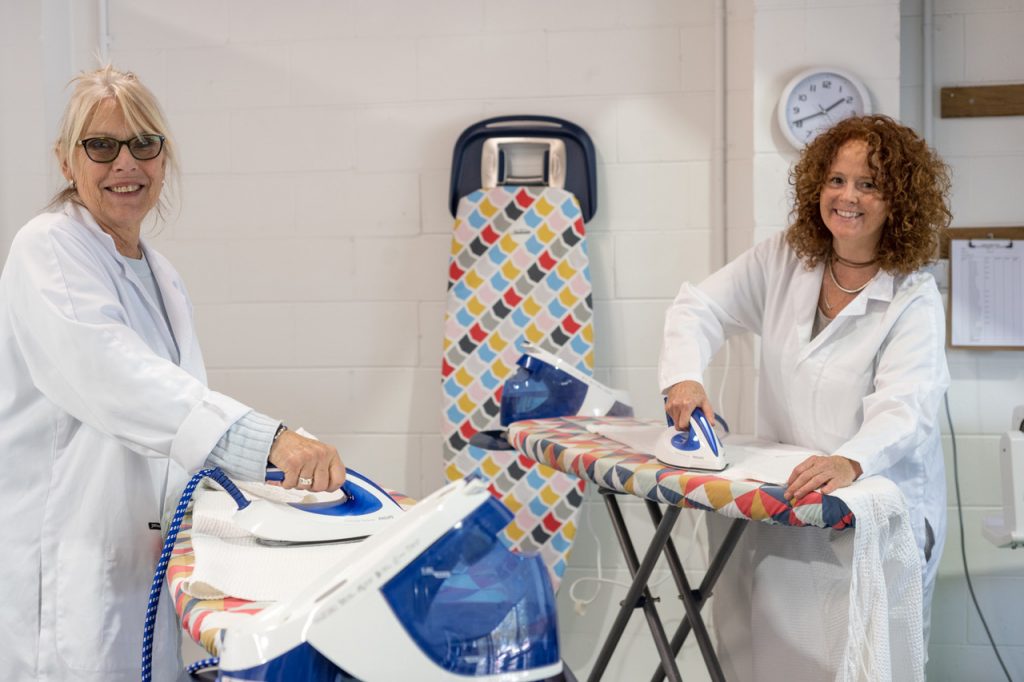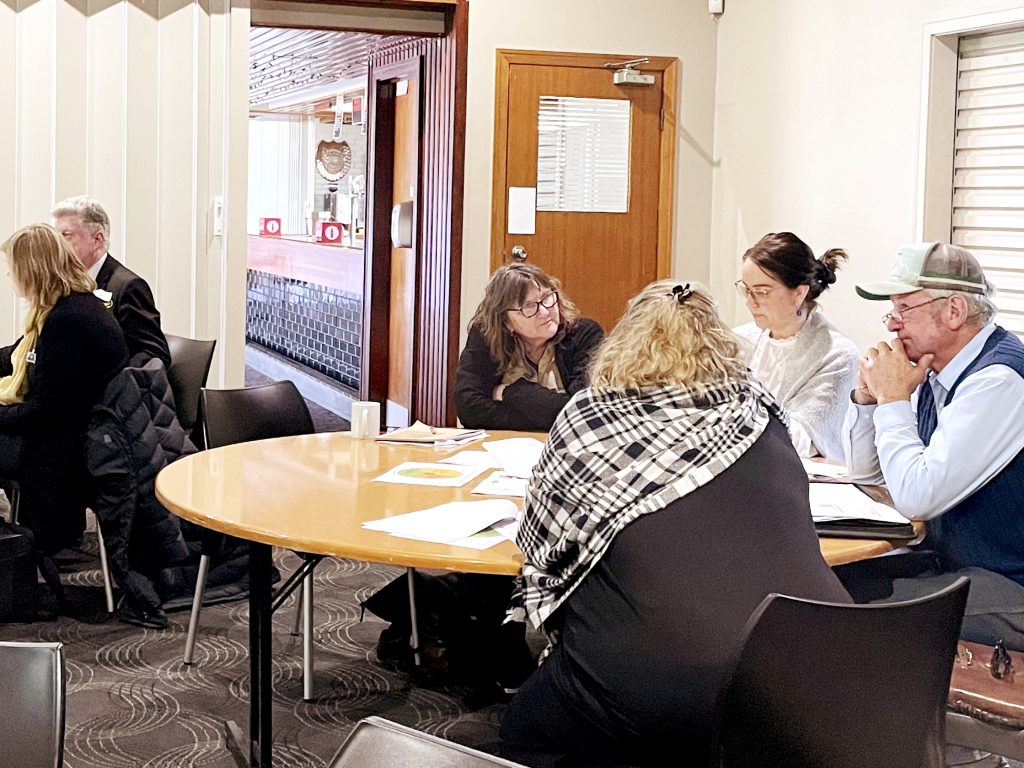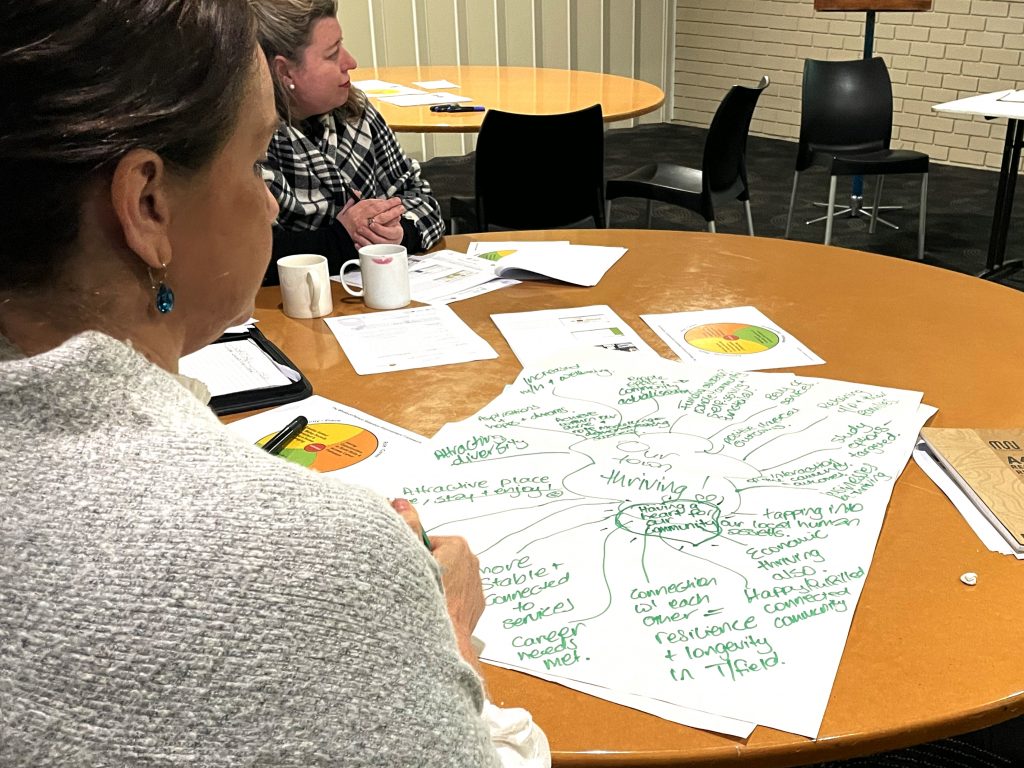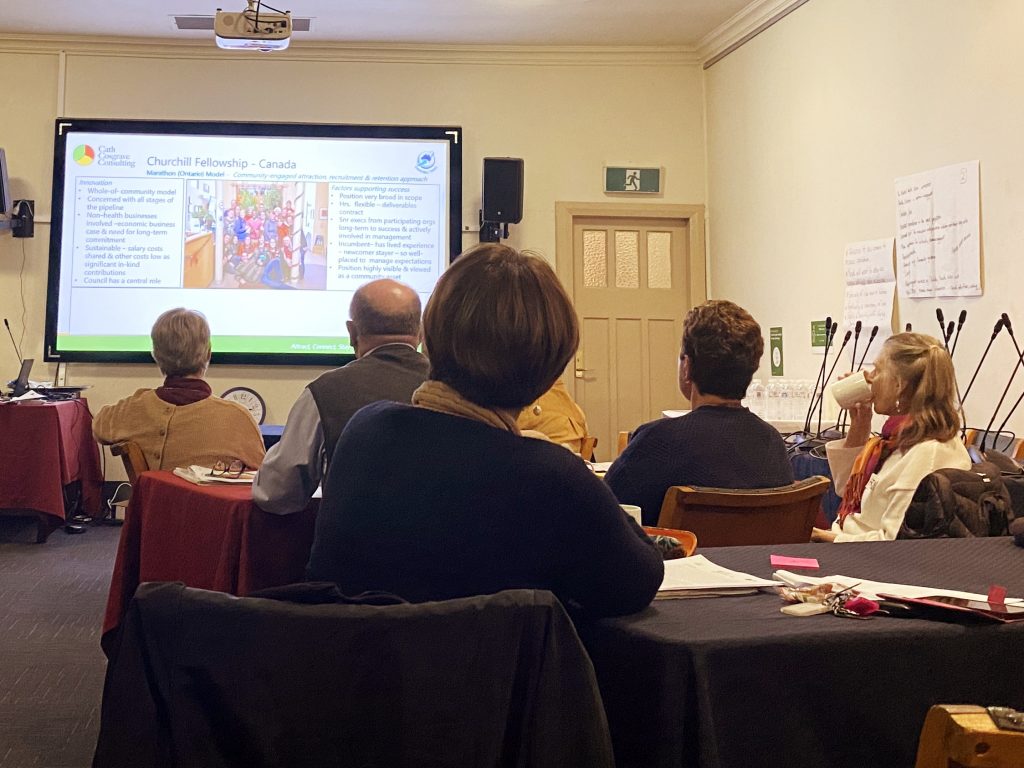Foundation for Rural & Regional Renewal (FRRR)
Initiatives funded in Nowra, Ulladulla, Bateman’s Bay and Bay & Basin
In partnership with The Snow Foundation and the Bendigo Bank Community Enterprise Foundation, FRRR has awarded $470,670 to community organisations across the South Coast of NSW. These grants are through the Investing in Rural Community Futures (IRCF) program, which builds and supports the capacity of local not-for-profit (NFP) organisations.
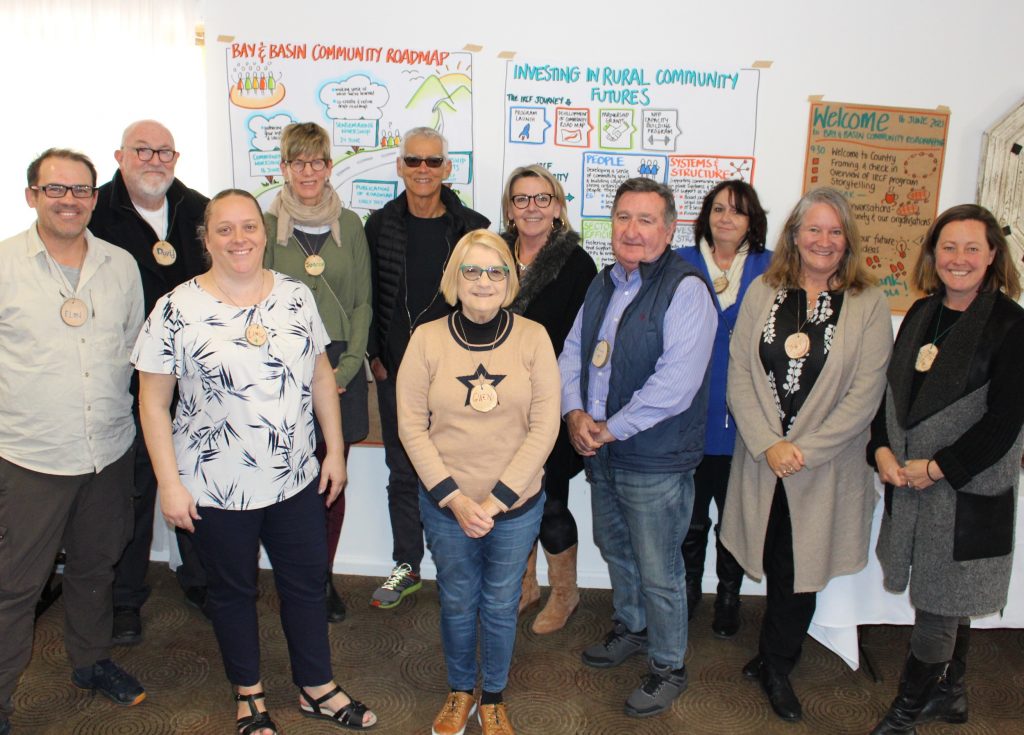
IRCF is a multi-year program that gives NFPs the resources and connections they need to support one another and to establish relationships that allow them to collaborate to fill in the existing gaps in their communities. The program operates in the South Coast communities of Nowra, Ulladulla, Bateman’s Bay and Bay & Basin.
Natalie Egleton, CEO of FRRR, said that the FRRR team has seen an increase in the level of interest in the IRCF program.
“One of the key elements of this program is the road mapping process where we bring local leaders together to identify gaps and, more importantly, future opportunities for their communities. This is quite unique to this program and so we have really noticed during this round, that the engagement in the road mapping process increased as everyone involved has now developed a greater understanding of how it works and how much it can benefit their local communities.
“We also noticed that community groups and NFPs are taking a much more collaborative approach to finding volunteers after volunteer engagement levels dropped off as a result of back-to-back disasters over the last couple of years. This is wonderful to see, as this program is designed specifically to encourage community organisations to work with one another and to find solutions within their own area and network,” Ms Egleton said.
Terry Snow, Founder of The Snow Foundation, which supports three regions within the IRCF program – Nowra, Bateman’s Bay and Ulladulla – said partnering with FRRR over the past three years has built stronger relationships within the South Coast communities.
“The South Coast is my home and given the challenges over the past few years, I have seen how bringing people together strengthens community. This is why the IRCF program is so good. It brings community groups together to work collaboratively and decide what they need and the best way to make it happen and each year relationships just get stronger,” Mr Snow said.
David Impey, CEO of Community Enterprise Foundation, the Bendigo and Adelaide Bank’s charitable arm, said they are proud of their partnership with FRRR and supporting the Bay & Basin communities.
“After what’s been an unimaginably difficult couple of years for these communities, it’s inspirational to see the community members coming together and working with one another as they once again begin to look towards building a more vibrant and resilient future. It’s this kind of dedication and willingness to support one another that will see the South Coast region thriving long into the future and that’s something that we take great pride in being part of,” Mr Impey said.
Some of the projects being funded are:
- Nowra Community Food Store Incorporated, Nowra – Planning for the Future – Define the direction of the organisation with a five-year strategic plan, operational business plan and HR framework – $13,000
- StoryFest Incorporated, Ulladulla/Shoalhaven – Fundraising for StoryFest school students – Enable the continued growth and success of StoryFest with a new website and marketing campaign – $10,000
- Rotary Club of Batemans Bay Inc, Batemans Bay/Eurobodalla – Establish and maintain the Batemans Bay Community Hub to provide information, resources and opportunities for local NFP organisations – $19,370
- Bay & Basin Community Resources Limited, Bay & Basin – Work, life and training Centre – Increase opportunities for youth to engage in training and employment with a project coordinator to establish a work, life and training centre – $30,000
In addition to the South Coast region, the IRCF South Coast program is also working in in Junee, Leeton and Nambucca Valley in partnership with the Vincent Fairfax Family Foundation.
For more information about the Investing in Rural Community Futures program visit – https://frrr.org.au/ircf-program/.
The full list of grant recipients and their projects is below.
| Organisation | Project | Location | Grant | |||
|---|---|---|---|---|---|---|
| BATEMANS BAY PARTNERSHIP GRANTS | ||||||
| The Circle Foundation Cooperative Ltd | Building Capacity: Circle Foundation Cooperative Business Systems Development Build capacity by employing a project officer and IT enhancements to facilitate ongoing service delivery for people living with chronic illness. | Eurobodalla | $22,675 | |||
| Eurobodalla Education and Therapy Services Ltd | Attract and Retain Allied Health Professionals Attract and retain specialised staff by formulating a well structured learning and development strategy for the organisation. | Batemans Bay | $20,000 | |||
| The Family Place Inc | Scoping Housing Solutions - Community Creating a Better Future Stimulate innovative thinking focussed on housing solutions by engaging a project officer to develop and cost models to enable clients and broader community to sustain tenancy and support sector wide collaboration. | Moruya | $26,208 | |||
| Rotary Club of Batemans Bay Inc | Batemans Bay Community Hub Establish and maintain the Batemans Bay Community Hub to provide information, resources and opportunities for local NFP organisations. | Batemans Bay | $19,370 | |||
| SEARMS Community Housing Aboriginal Corporation | Living Library - Knowledge Circle Celebrating the cultural gift of language and the art of story telling in Aboriginal culture by adopting a holistic approach and sustained capabilities to community engagement. | Batemans Bay | $14,000 | |||
| Southcoast Health and Sustainability Alliance | Batemans Bay Community Coordinator and Business Manager Strengthen governance and business systems internally, continue to connect with council and assist not for profit community organisations to reduce their on-going energy costs. | Batemans Bay Region | $20,000 | |||
| BAY & BASIN PARTNERSHIP GRANTS | ||||||
| Bay & Basin Community Resources Ltd | Work, Life and Training Centre Increase opportunities for youth to engage in training and employment with a project coordinator to establish a work, life and training centre. | Sanctuary Point | $30,000 | |||
| Sussex Inlet Foundation for Community Development | Strengthening our Foundation Strengthen the volunteer committee of the Foundation for Community Development to help them grow the ways they can support and strengthen the Sussex Inlet Community. | Sussex Inlet | $19,500 | |||
| Tomerong School of Arts | Policies and Procedures Project Enable the hall to operate more effectively with the development of policies and procedures. | Tomerong | $12,000 | |||
| Vincentia High School P & C Association | Launch of Walawaani-ngarn Boost the profile and awareness of the community health hub with a launch event and marketing material. | Vincentia | $9,000 | |||
| NOWRA PARTNERSHIP GRANTS | ||||||
| Bomaderry Community Inc | Paying It Forward - Supporting Those People Who Sustain Our Community Support the volunteers to rejuvenate and focus on their passion | Bomaderry | $3,240 | |||
| Cullunghutti Aboriginal Child and Family Centre Aboriginal Corporation | Maintaining Momentum - Cullunghutti Master Plan Boost capacity to engage project officer to operationalise the strategic plan previously funded. | Shoalhaven | $20,000 | |||
| Kangaroo Valley Voice Incorporated | Kangaroo Valley Hub Enable development of a community hub with the collation of information and scoping of project. | Kangaroo Valley | $15,000 | |||
| Noahs Ark Centre of Shoalhaven Inc | Knowledge, Strength and Resilience- Sharing for the Future Nurture opportunity to provide intergenerational peer mentoring of professionals in the disability service. | Nowra | $7,900 | |||
| Nowra Community Food Store Incorporated | Planning for the Future Define the direction of the organisation with a 5 year strategic plan, operational business plan and HR framework. | South Nowra | $13,000 | |||
| Nowra Local Aboriginal Land Council | Strong Foundations Establish organisational policies and procedures manual, branding and communications strategy and provide governance support to the board. | Bomaderry | $18,315 | |||
| Pathways Foundation Limited | Pathways To Leadership Strengthen skills and abilities of youth mentors to deliver best practice programs locally. | Berry | $24,000 | |||
| Shoalhaven Business Chamber Incorporated | Community Plus Enable the community sector to leverage the established business chamber to share knowledge, build capacity and resilience by strengthening the links between the corporate and community sector. | Shoalhaven | $20,000 | |||
| Shoalhaven Community Pre School Inc | Administration and Operations Manager Support the final transition of the organisational growth and relocation of preschool. | Nowra | $30,000 | |||
| The Shoalhaven Women's Resource Group Ltd | Capacity and Capability Building Prepare the organisation to achieve accreditation, develop branding and a more efficient and informative website. | Nowra | $10,000 | |||
| ULLADULLA PARTNERSHIP GRANTS | ||||||
| Independence Ulladulla Inc | Helping Hands Improve systems to support leadership to innovate and grow | Ulladulla | $19,000 | |||
| Milton Ulladulla Business Chamber Inc | Community Connect - Information Creates Endless Possibilities Continuation of building connections within the community groups, assisting the the existing and new volunteers by capturing important information, to then share and create possibilities for the broader community. | Ulladulla | $20,830 | |||
| Noahs Ark Centre of Shoalhaven Inc | Destination Ulladulla Part Two Implement communication plan and to disseminate our videos most effectively and will build on capacity in recruitment and communications into the future. | Ulladulla | $12,000 | |||
| Safe Waters Community Care Inc | De-Escalation Training and Occupational Violence Prevention Training Empower staff and volunteers with the skills to de-escalate conflict and violence situations. | Ulladulla | $3,900 | |||
| South Coast Bookclubs Inc | Saving and Expanding the Bookclub Support for a self-sustaining book club service in Ulladulla to create a sense of community for new and existing residents. | Ulladulla | $6,456 | |||
| StoryFest Inc | StoryFest Inc - Fundraising for StoryFest Enable the continued growth and success of StoryFest with a new website and marketing campaign | Milton | $10,000 | |||
| The Dunn & Lewis Youth Development Foundation Ltd | Community Spotlight Foster youth interest in community volunteering with a Youth Podcast Series. | Ulladulla | $10,795 | |||
| Treading Lightly Inc | Regenerative Development Officer Role Build a Regenerative Design Model for the benefit of this and other NFP organisation as well as a wider range of stakeholders. | Ulladulla | $30,000 | |||
| Ulladulla and Districts Community Resources Centre Inc | Building Sustainability Prepare the Raft Race Committee for the future with succession planning and marketing support. | Ulladulla | $3,481 | |||
For 33 years families from Singleton and surrounding areas experiencing life challenges – from domestic violence to anxiety in young people – have been coming to Singleton Family Support for therapeutic counselling, family capacity building, education and wellbeing programs.
Situated on the banks of the Hunter River, Singleton is in NSW, some 197 kilometres north-north-west of Sydney. A major coal mining centre, the rural region has limited public transport options, a transient and often isolated population linked to the mining industry and limited support services.
Supporting this community, Singleton Family Support Services has a passionate, capable and qualified team of professional workers. Together, they offer support to more than 50 families in a one-to-one setting and approximately 30 individuals in a group setting at any given time.
Since the COVID pandemic and critically in the last few months as restrictions have eased, the Service has been inundated with referrals from individuals, families and other service providers. Over the last six months, referrals have increased more than 50% on the same time the previous year. The Service’s ability to refer onto other professionals, such as GPs, Psychologists, Housing services and Mental health providers, has also been impacted, with many professionals’ books closed and long waiting lists. This has placed a significant strain on the Singleton Family Support’s ability to respond to each referral appropriately. While there are many issues and people needing support, the Service is particularly concerned about the mental health of young people. COVID created a pandemic of anxiety and uncertainty with this group. There are no youth-specific mental health services in Singleton.
A $49,500 COVID Regional Community Support Program grant, funded by Resilience NSW, will allow the service to increase staff time. This equates to 80 additional referrals to Family Works, including 10 additional counselling places for youth. An additional six support groups can be offered to the community and it means further support for the organisation’s wellbeing programs. The funding reduces the pressure on the organisation. For families, this will mean timely assessments of the family’s needs, earlier interventions, greater access to counselling, educational programs and support groups, building awareness in parenting theories, domestic and family violence and mental health. This will all lead to increased family capacity to build resilience and safety for children and families.
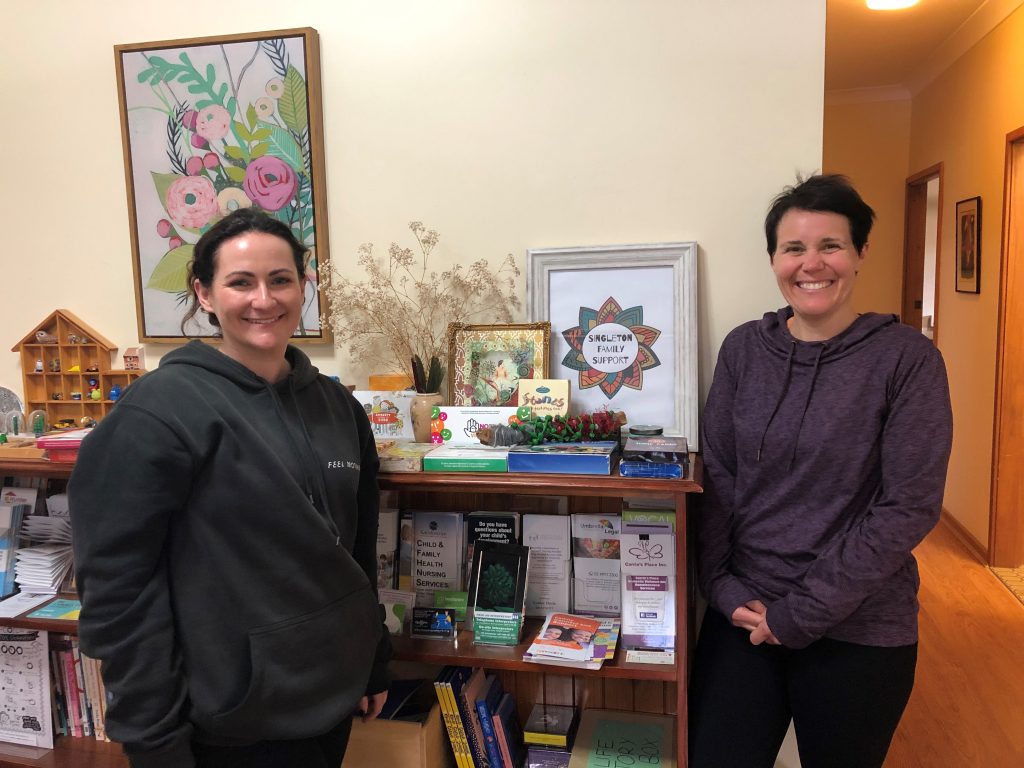
There are many elderly residents living there in aged care in the Southern Highlands in New South Wales who have limited financial support. In fact, the community-owned Harbison Memorial Retirement Village – which provides up to 50% of their residential places to residents who can’t afford to pay for their care and accommodation – receives no government funding for wellbeing, or capacity building programs.
In 2021, Harbison initiated the Grand Friends Pilot Program, an inter-generational community initiative connecting elderly residents with Kinder to Year 2 students, their families and the wider community. Partway through, the program was suspended due to COVID and a lack of funding. But the Southern Highlands Community Foundation – an organisation fostering local philanthropy to support community needs and initiatives – auspiced a grant application on behalf of Harbison, and received $20,000 through FRRR’s In a Good Place (IAGP) program to complete their pilot.
Through the generous support of CCI Giving, this IAGP grant helped restart Harbison’s pilot program, which concluded in December 2021 following a short suspension. And with benefits for both aged care residents and children alike, the program has now begun to roll out to other local schools.
The weekly program involves Kinder, Year 1 and Year 2 classes hosting their Grand Friends, with everyone participating in structured activities, conversation and a shared morning tea. In between visits, the children write letters, make cards, rock friends and complete activities to prepare for the next Grand Friends visit – Grand Friends become part of the day-to-day discussions and activities in the classroom. Residents reported reduced loneliness and incidences of depression, improved memory, mood, confidence and mobility, and an increased sense of meaning and purpose in their life.. The program also saw evidence that participating children develop empathy, social confidence and language skills.
Harbison resident, Harold Griffin, believes it is a gift to be able to visit his junior class each week.
“I get a thrill out of attending the school visit. The energy and excitement the kids have, created by our group attending their school, is wonderful,“ Harold said.
Residents of the severely drought-hit Marra Creek community, in NSW, have traditionally had to travel up to 250km to see a movie or drive 80km to the nearest hotel for social get-togethers.
The Marra Creek Public School Parents and Citizens Association decided things needed to change and set about creating an option for locals to enjoy pizza and a movie closer to home.
The school, located on the North West Plains, is one of the smallest in NSW, with a current enrolment of seven students, making it very isolated. Thanks to the ongoing and severe drought conditions in the area, the Marra Creek community has struggled with fundraising for workshops and events for local people.
P&C President Will Woolcock said the project aimed to combat isolation and bring the widespread district – which spans Bogan, Brewarrina and Warren – closer together to reconnect, strengthen community spirit, relax and enjoy a break.
“Between the lack of water and rain for crops, constantly feeding animals and financial difficulties, our community has had very little chance to get together,” he said.
With the help of a $5,000 Aussie Cotton Farmers Grow Communities Grant, their wish for a pizza oven and movie equipment for the school was been granted. The grant covered a media projector, outdoor screen, sound system, set top box and satellite dish as well as a pizza oven at the school.
This means the community is now able to gather locally for social activities including film nights and watching major sporting events, although COVID-19 brought additional issues and delayed the launch event and initial planned activities.

Yuin Nation
Professional artists from the Bega Valley are invigorating Pambula Village with vibrant and colourful large-scale artworks, thanks to a bushfire recovery initiative.
Six commissioned pieces now complement a 22-site historic walking tour and are providing a boost to morale, employment and tourism.
The Bega Valley LGA was among the most impacted by the 2019/20 Black Summer bushfires, with 465 houses destroyed, 1,279 rural landholders impacted and around 60 per cent of the area burnt. Pambula has also experienced drought and COVID-19. The cumulative effects of all this have resulted in the loss of livelihoods, employment, prospects, wealth, environment, sense of security and mental wellbeing.
The Waislitz Family Foundation, in partnership with Australian Community Media, joined forces with FRRR after the Black Summer bushfires to support recovery. The Pambula arts project was granted $25,000 through FRRR’s Strengthening Rural Communities program, funded by the Waislitz Family Foundation in partnership with Australian Community Media.
Pambula Business Council President Michelle Pettigrove said the road back from the region’s losses is long and daunting and the ongoing Pambula Art Project gives this community a strong sense of unity, pride and direction.
“There is a discernible buzz on the street, tourists talk about the great community spirit of the town,” she said.
Artists get to exhibit their work to a large audience while helping increase Pambula’s profile and attract visitors to the Village and extended Bega Valley region. It’s boosting sales for local businesses and creating a more culturally vibrant community.
The Art Project was also mentioned frequently by voters when Pambula was named a finalist in the NSW Small Top Tourist Town awards.
While many buildings in Pambula have some historic significance, plain brick walls of newer buildings were identified as perfect ‘canvases’. Some artworks were painted directly onto buildings, and a clever solution using Laminex and aluminium panels meant others could be installed to building facades without causing damage.
Ms Pettigrove said the artworks were not designed to overpower the existing streetscape “but rather to illuminate and amplify Pambula’s historic, cultural and environmental identity, including the history and connection to country of the Yuin People – the original custodians of our region”.
A self-guided history walking tour map has also been produced, featuring 22 of Pambula’s historic buildings and sites to shine a spotlight on the fascinating and quirky history of the village and local identities. Pambula was the birthplace of Sir William McKell, the second Australian-born Governor General, and his home is now an art gallery. Syms Covington, who served with Sir Charles Darwin on ‘The Beagle’ retired to Pambula and continued to send Darwin samples of Australian flora and fauna for many years. Covington then served as postmaster in Pambula and his house is now a popular restaurant/gallery.
Future plans for the project include adding and celebrating more Yuin Nation history in the original self-guided History Walk, following ongoing extended consultation with both the Bega Aboriginal Land Council and the Twofold Aboriginal Corporation.
Arakwal Country
Founded in 2015, The SHIFT Project Byron is a short-term educational transition program for women who are homeless or at risk of homelessness. Five staff, 12 volunteers and a governing committee of seven oversee the program that supports women navigate the challenges from homelessness to independence.
Lack of financial stability and economic independence are major factors contributing to homelessness, and SHIFT wanted to disrupt these persistent challenges in the Byron area, increase financial wellbeing, employability, and community connection through their new project – The Linen SHIFT.
The Linen SHIFT is an innovative social enterprise laundry service, providing transitional employment coupled with training, mentoring, and skill development to help disadvantaged women sustainably enter the workforce. Programs run for between three and 12 months, adapting to the unique needs of individual women, including employment offers / shift times for mothers and accommodating physical capability. Community connections are fostered through the CWA, and SHIFT employs a qualified support worker to assist participants to achieve their individual goals, address housing needs and underlying hardships.
The SHIFT Project applied to the ANZ Seeds of Renewal grant program at a critical point in its growth. The program was running as a small-scale, in-house opportunity for homeless women living at the SHIFT Project’s residential property in Byron Bay. The social enterprise model will allow for the program to be sustainable and self-funded in the long-term, but they needed initial funding to expand and relocate to a commercial venue, to meet increasing demand for participation from local vulnerable women. Several funders contributed to the project, including FRRR’s $14,265 grant to purchase an ironing roller.
The program successfully launched in March 2020 and thrived during the uncertain times of COVID. Fourteen women were employed over 10 months and provided with income and stability. The program has been supported by regular customers, and the business has been at capacity and is now planning to expand.
Letters of support from clients of SHIFT give glowing reviews about its management and impact. Elizabeth Jackson, President of Liberation Larder wrote: “The SHIFT Project has shown they are intelligent, creative, hard-working & reliable in their approach to growing their service for the benefit of women at risk of homelessness. With each new project they add to the social fabric of our community.”
The SHIFT Project takes pride in the community they have created, and with very good reason.
“Our women have provided feedback that since joining our team they feel safe, connected, encouraged and valuable – directly addressing the isolation and low self-esteem that poverty can generate.”
Anne Goslet, Managing Director The Linen SHIFT
And they are set to make an even bigger impact, with projections that in five years the project could support upward of 100 women to shift from disadvantage to independence.
Wiradjuri Country
The transition from teenager into adulthood is widely acknowledged as a tough one. As we leave behind childhood and enter our formative years, a greater sense of responsibility, identity and independence can be extremely overwhelming for some. For those living in remote, rural, and regional Australia, this new life-stage can be even more daunting, especially as many young people are forced to move out of familiar environments to further their education or find employment.
Wagga Wagga, in the Riverina region of New South Wales, currently has around 11,800 young people living in the area. While Wagga Wagga has a lot to offer its younger residents, from education to a vast range of sporting clubs, the youth unemployment rate sits at 11.6% (2016 Census data).
With a large portion of the population transitioning from adolescence into adulthood, headspace Wagga Wagga wanted to help make the process a bit easier.
Partnering with local organisation Youth Reference Group (YRG), headspace Wagga Wagga developed a program called “Adulting”, based on an idea developed at the Heywire Regional Youth Summit. The YRG is an active group of individuals aged between 16-25 who dedicate their time to issues that impact young people’s mental health. Through a mix of brainstorming and lived experience, the group was able to identify 10 aspects of adult life they wished they knew more about before they had to deal with the issues. The list included the voting process, understanding tax and superannuation, the maintenance of rental properties (including cleaning), organising healthcare (both private and public), the job interview process and making important appointments.
Using a $7,000 FRRR ABC Heywire Youth Innovation grant, funded by The Sally Foundation, headspace Wagga Wagga and YRG were able to hire a videographer to help produce a video for each topic, which was then distributed on social media.
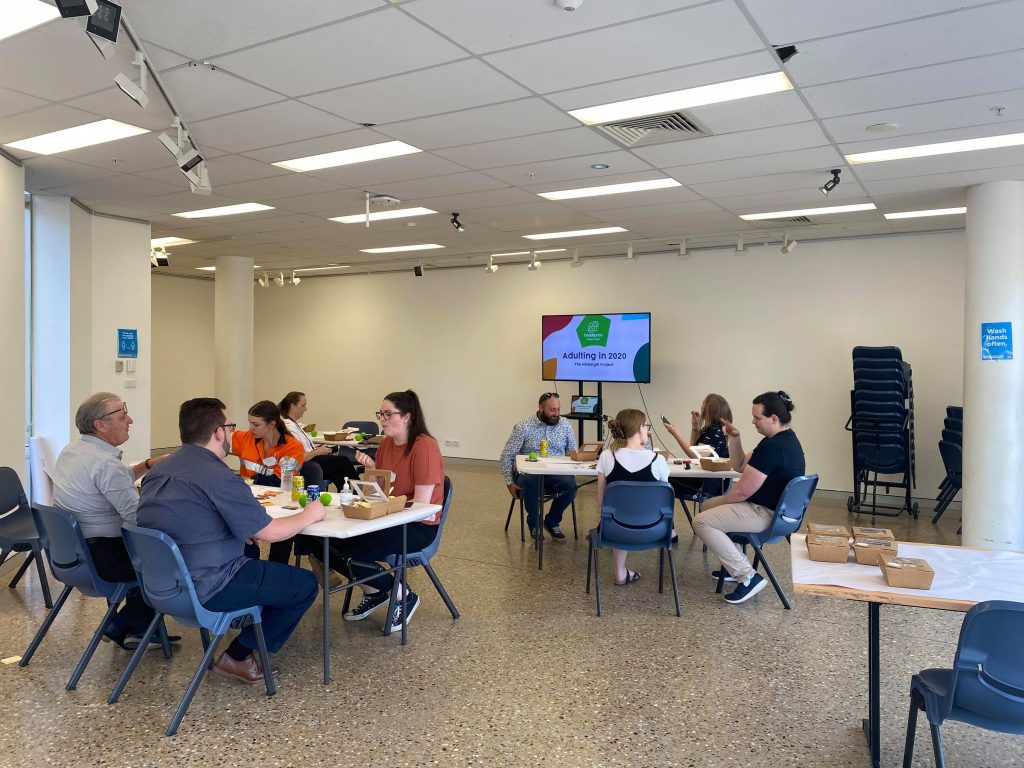
The videos were released over 10 weeks, via a Facebook page moderated by the YRG team. The “Adulting” videos reached 500 young people who now have resources to build practical life skills.
At the end of the program, the “Hindsight Project” took place for the ten young people who were instrumental in creating and curating the content. This provided an opportunity for reflection and discussion about the project and also a chance for networking.
COVID-19 restrictions made promoting the videos and authentic engagement with the content challenging. However, with the content still online and available for those who need it, the videos will continue to reach young people and provide them with tips and advice for their big move into adulthood.
Nari Nari Country
On average, people in rural and remote Australia experience much higher rates of chronic disease, avoidable illness, and are far more likely to be hospitalised in circumstances where earlier access to the right care could have prevented it. Sadly, they also find it much harder to access allied health professional services: they are often thin on the ground or not there at all.
One of the main reasons for this is the difficulty in attracting and retaining rural health workers, leading to serious gaps and inequity in access to preventative and primary health care in rural and remote areas. While connection to community and place is increasingly being identified as an important factor for retention, there are few examples of how rural communities can foster or create these conditions in a systematic way.
But one organisation is trying to help resolve this. Services for Rural and Remote Allied Health (SARRAH) is a grassroots organisation advocating on behalf of rural and remote Australian communities to have access to allied health services. SARRAH is also the peak body representing rural and remote allied health professionals (AHPs) working in public, private and/or community settings.
They received a grant for just over $140,000 through FRRR’s Enhancing Country Health Outcomes (ECHO) program, funded by Beyond Medical Education, to address persistent rural health workforce shortages in small rural and remote towns in NSW and Victoria through a project leveraging Rural Health Workforce Coordinators (RHWC).
The project team is headed by Dr Cath Cosgrave, a leading research academic in the field of rural health workforce attraction and retention.
Generally, retention research has focused on the influence of organisational and role conditions, however how individuals feel and perceive their acceptance into a community is increasingly proving to significantly influence retention. Dr Cosgrave’s findings, along with other research, indicate that the decision of a health professional to take up, stay or leave a rural position involves personal, organisational and social considerations. People who relocate to a rural place for work and have persistent feelings of social alienation and loneliness will always leave, irrespective of whether the position is financially beneficial.
That’s the key insight that informed the creation of the Attract, Connect, Stay project, which is based on a successful model developed in Marathon, Canada. The translation of this model into the rural Australian context will benefit not just the communities involved in the project but develop tools and resources that can be applied more broadly.
The project involves a whole-of-community approach to supporting health professionals and their partners / families when moving into a new rural community to help them to feel settled, become socially connected, and experience a sense of belonging, all identified as essential conditions for retention.
Planning commenced with three New South Wales pilot local government areas in August 2021: Glen Innes, Gwydir Shire and Narrabri. These communities will be supported through a series of co-designed workshops to form a network of community, local government, businesses and health service representatives. These networks will go on to jointly develop, fund, recruit, appoint, manage and monitor the RHWC position and its’ success in attracting and retaining suitable health professionals to fill health service gaps in each community.
Learnings from the three NSW primary sites will be captured in prototype tools and resources, and further tested in two secondary sites in rural Victoria. The project will conclude with a launch of a purpose-built website where the refined tools and resources will be made available to the public. This will allow other communities to use the tools and resources to help design local approaches to address gaps in their own primary and preventative health workforces.
“We need to see more community-led and innovative projects like Attract, Connect, Stay to ensure rural and remote communities have access to health professionals to the same extent as their city-based counterparts.”
Cath Maloney, SARRAH CEO
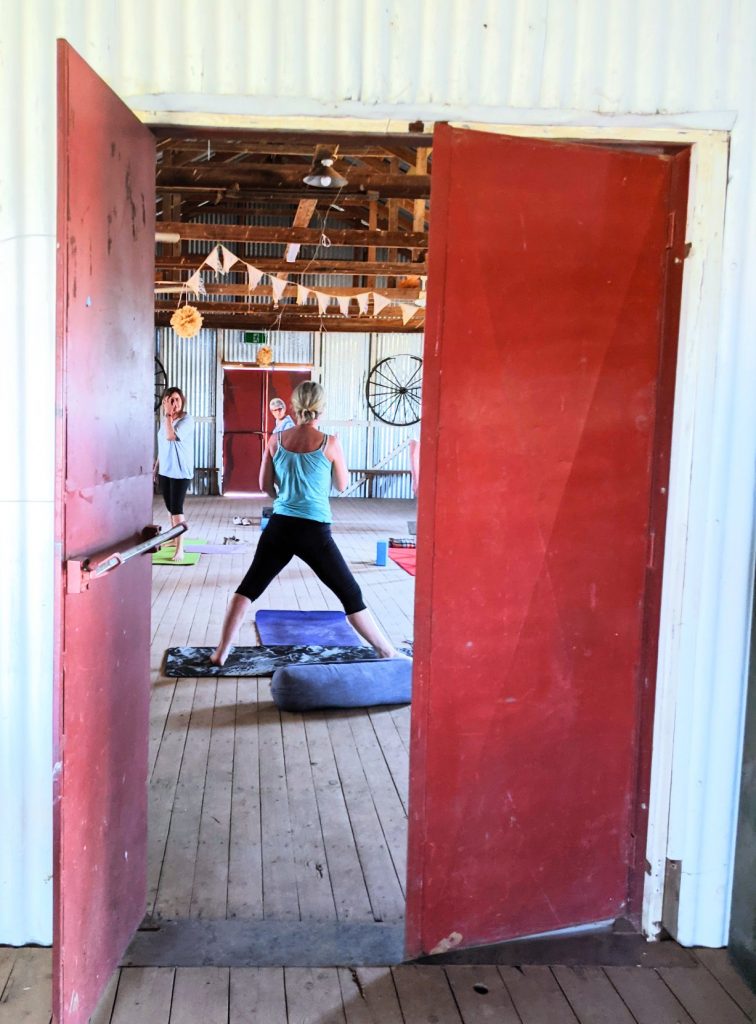
In the Bogan Shire of New South Wales, you will find the town of Nyngan. Like many remote farming towns, social isolation is a big issue within the community. Farmers and their families have had to deal with the effects of drought for years, placing extreme pressures on many people and businesses in the community. Financial pressure can often be a driving force behind social isolation in these communities. Social events and participation can be some of the first things to go when trying to save money. This can create a bigger divide for many adults, particularly farmers and their families, in the town.
CatholicCare Wilcannia-Forbes (CCWF) was established in 1996 and covers 52% of Western New South Wales. Their diverse programs offer support for parents and children, counselling, help with financial management, mental health services and programs specifically for men, Indigenous communities, and young people.
In partnership with Bogan Bush Mobile, CCWF created The Wellbeing Mobile, which included travelling out to small communities and isolated properties within a 130km radius of Nyngan, providing an outreach service for mental and emotional wellbeing for adults. This program was based on the success of the Bogan Bush Mobile early childhood education sessions, which focused on children aged 0-5. This new program was dedicated specifically to help support the adults and parents within the community.
A $150,000 Tackling Tough Times Together grant allowed CCWF to visit 11 towns over two years, and offer fortnightly two hour sessions ranging from remedial massage, yoga, exercise and nutrition, to body alignment, pilates, art therapy, counselling, clinical hypnotherapy, financial counselling and community wellbeing days.
The response to The Wellbeing Mobile was fantastic, with 300 people benefiting directly from the activities, and many more family members benefiting indirectly. The sessions were designed to help fight “drought fatigue” by giving families a break from the stressful and anxious period caused by drought and social isolation. In particular, the sessions were a big hit with mothers in the community. Bogan Bush Mobile early childhood education kept young children entertained while their mothers were able to enjoy the social interaction and the relaxing activities.
Organising these events to avoid shearing and harvest time was important in the sessions achieving high participation rates. Accommodating people that needed to travel was also an issue. To solve this problem, introducing Activity Days allowed some people to experience several activities during the day. Having multiple activity sessions over the duration of the project gave residents more opportunities to participate if they were unable to attend a class.
Executive Leader of Program Development and Delivery, Dorothee Crawley said “The feedback was fantastic, with one lady saying she had lived on her farm for 20-years and this was the first time she had interacted with her neighbours. The Wellbeing Day provided services that had never been available in the town before, and everyone thanked us for organising this event in their community.”

